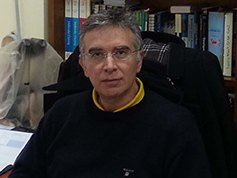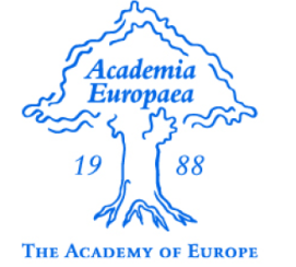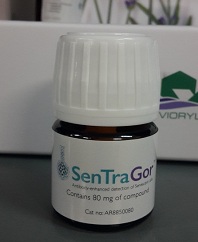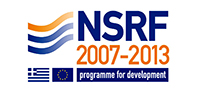The role of Cdc6 in cancer progression
CDC6 acts as a prototypical oncogenic stimulus operating in a bimodal manner (1-4): i) triggering replication stress, fueling genomic instability (1,2,3), ii) functioning as a transcriptional repressor by switching off the INK4A/ARF and CDH1 (E-cadherin) loci, disrupting cell cycle progression and cell-to-cell communication (3,4).
1) Karakaidos et al. Overexpression of the replication licensing regulators hCdt1 and hCdc6 characterizes a subset of non-small-cell lung carcinomas: synergistic effect with mutant p53 on tumor growth and chromosomal instability--evidence of E2F-1 transcriptional control over hCdt1. Am J Pathol 2004, 165(4): 1351-65.
2) Liontos et al. Deregulated overexpression of hCdt1 and hCdc6 promotes malignant behavior. Cancer Res 2007, 67(22): 10899-909.
3) Sideridou et al. Cdc6 expression represses E-cadherin transcription and activates adjacent replication origins. J Cell Biol 2011, 195(7): 1123-40.
4) Petrakis et al. Cdc6: a multi-functional molecular switch with critical role in carcinogenesis. Transcription 2012, 3(3): 124-9.
An Oncogene-Induced DNA Damage Model for Cancer Development
Activated oncogenes disrupt normal proliferation, triggering replication stress, leading to DNA damage that stimulates the DNA damage response (DDR) pathway. Subsequently, DDR mobilizes the anti-tumor barriers of apoptosis and senescence.
As DNA damage accumulates, the cells’ capacity to repair in an error-free manner is overwhelmed, shifting repair to error-prone routes. The later fuels genomic instability, promoting cancer progression (1, 2, 3). Within this context, we have shown that DDR activation precedes ARF induction (4) and that ATM, a pivotal DDR upstream kinase, keeps in check ARF as a back-up anti-tumor response (5).
1) Gorgoulis et al. Activation of the DNA damage checkpoint and genomic instability in human precancerous lesions. Nature 2005, 434(7035): 907-13.
2) Bartkova et al. Oncogene-induced senescence is part of the tumorigenesis barrier imposed by DNA damage checkpoints. Nature 2006, 444(7119): 633-7.
3) Halazonetis et al. An oncogene-induced DNA damage model for cancer development. Science 2008, 319(5868): 1352-5.
4) Evangelou et al. The DNA damage checkpoint precedes activation of ARF in response to escalating oncogenic stress during tumorigenesis. Cell Death Differ 2013, 20(11):1485-97.
5) Velimezi et al. Functional interplay between the DNA-damage-response kinase ATM and ARF tumour suppressor protein in human cancer. Nat Cell Biol 2013, 15(8): 967-77.
Genomic instability — an evolving hallmark of cancer
Genomic instability as a hallmark of cancer. a) A proposed revision of the hallmarks of cancer to include genomic instability, and to consolidate the self-sufficiency in growth signals and insensitivity to anti-growth signals into the single hallmark of activated growth signalling. The secondary hallmarks (oxidative stress and proteotoxic stress) are shown separately. b) The temporal order by which the hallmarks are acquired in hereditary cancers. The establishment of genomic instability is probably the initiating event, which then facilitates the establishment of all the other hallmarks. c) The temporal order by which the hallmarks are acquired in sporadic (non-hereditary) cancers. Deregulation of growth-regulating genes can be the initiating event. This leads to DNA damage and DNA replication stress, which, in turn, lead to genomic instability and selective pressure for tumour suppressor p53 (TP53) inactivation. Loss of p53 function allows evasion from cell death, whereas the genomic instability provides a fertile ground for additional mutations that lead to the establishment of the remaining hallmarks, as in hereditary cancers (1). [Figure in part a) is modified, with permission, from REF 59 © (2009) Elsevier of (1)]
1) Negrini et al. Genomic instability--an evolving hallmark of cancer. Nat Rev Mol Cell Biol. 2010, 11(3): 220-8.
|
|
|
Prof. Vassilis G. Gorgoulis
Laboratory of Histology-Embryology
Chair of Clinical Molecular Pathology, Ninewells Hospital and School of Medicine
University of Dundee, Dundee, UK
Biomedical Research Foundation of the Academy of Athens
Faculty Institute for Cancer Sciences, University of Manchester, Manchester Centre for Cellular Metabolism,
EMBO member
European Academy
Academia Europaea member
Intelligencia.ai, 180 Varick Street, 6th Floor, New York, NY 10014, USA
Office Tel: 0030 210-7462352 |
News
Error: No articles to display














